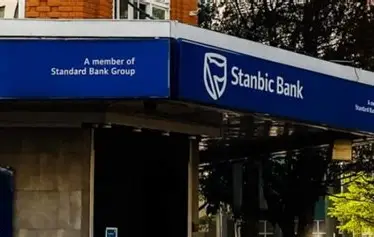
Business environment in Kenya is showing recovery after a period of decline or plateauing in the country’s private sector in September with the Stanbic Bank Kenya Purchasing Managers Index (PMI) signalling an improvement in performance for the first time in five months.
The uptick is driven by solid expansions in output, new orders and employment.
The headline PMI figure rose sharply to 51.9 in September, up from 49.4 in August, moving above the neutral 50.0 threshold. This upturn follows a challenging period marked by political disruptions and intense price pressures earlier in the year.
Business activity and new sales both expanded for the first time in five months, signalling a stabilisation of the economy and improving consumer demand.
The recovery encouraged firms to hire new staff, resulting in the quickest rise in employment since May 2023.
Christopher Legilisho, an economist at Stanbic Bank noted that business conditions expanded in September, implying the start of a recovery after the disruptions that followed protests in the second quarter of 2025.
“New orders and output strengthened as consumer demand improved, despite some firms reporting caution from clients due to still challenging economic conditions. Employment, meanwhile, increased due to gains from new orders and output,” Legilisho said.
Legilisho explained that business prospects for the upcoming year were still strong, albeit far off from historical trends. This implies that, while conditions for some firms have been improving, most still experience the business environment as challenging.
He said that driving the improvement in business conditions was a renewed expansion in activity, which in turn was strongly related to rising sales and a stabilising economy.
Legilisho highlighted that out of the firms surveyed, roughly a third (33 per cent) noted that their output had grown during September, compared to 23 per cent that recorded a decline.
The recovery was not universal. Purchasing activity continued to fall, as many businesses remained cautious due to low sales in recent months. The construction industry, in particular, saw a sharp fall in output.
While the rate of overall input cost inflation moderated to its weakest level since May, firms reported persistent concerns about higher taxes and rising commodity prices (such as fuel and foodstuff).
Despite this easing of costs, businesses increased their selling prices at a slightly quicker, although modest, pace compared to August.
Looking ahead, Kenyan firms maintained sustained confidence regarding future activity. Although slightly down from August, the 12-month outlook remains one of the best observed in nearly three years, with firms planning expansions, product diversification, and increased marketing.
“Some businesses reportedly benefitted from effective marketing and investment into products and services. That said, some areas experienced weakness, especially in the construction industry where output fell sharply,” Legilisho said.
On sales intakes, he said that the survey data also signalled a renewed upturn in September. New business growth was solid, having rebounded from four months of consecutive downturns.
He pointed that this recovery encouraged firms to hire new staff, leading to a rise in employment that was the quickest recorded since May 2023. With staff capacity up, firms managed to deplete their backlogs for the fourth month running.
- A Tell Media / KNA report / By Joseph Ng’ang’a








